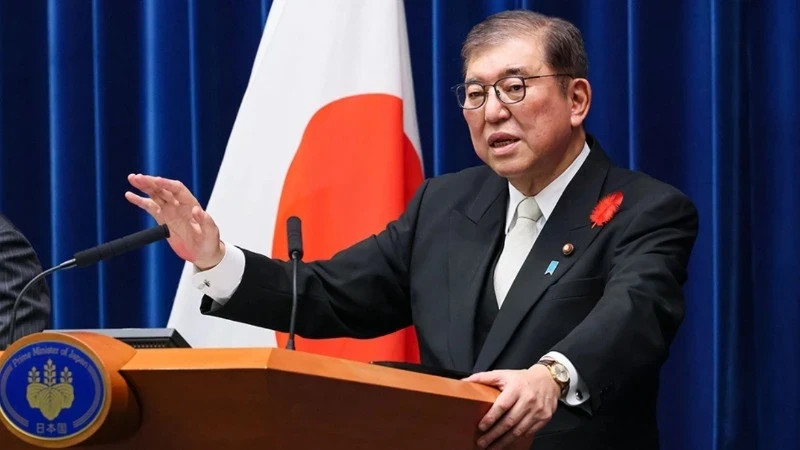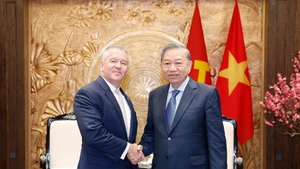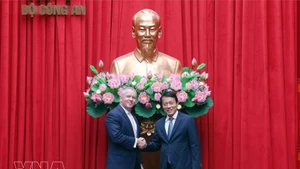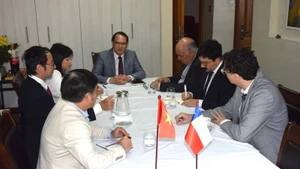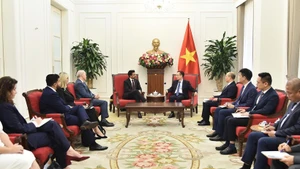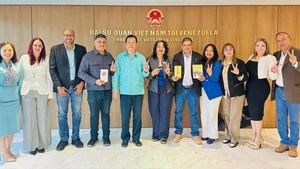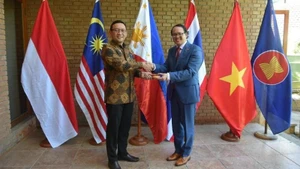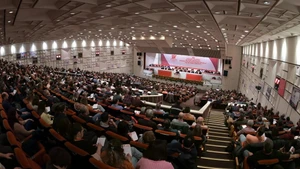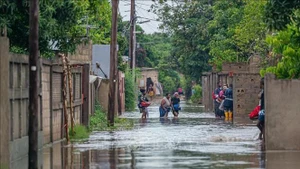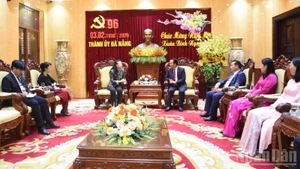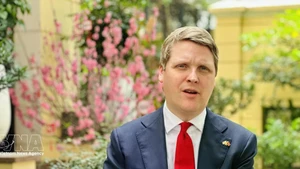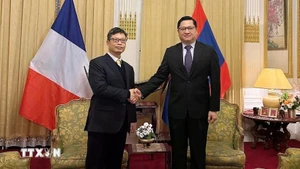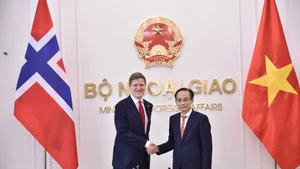This marks Prime Minister Ishiba Shigeru’s first visit to Vietnam since taking office and also the first visit following the two countries’ upgrade of their relationship to a comprehensive strategic partnership in November 2023.
The visit takes place at a time when the Vietnam–Japan comprehensive strategic partnership is entering its second year, achieving new progress and comprehensive development across all fields.
Thanks to tireless efforts by leaders and the peoples of both countries over more than half a century, the cooperation and friendship between Vietnam and Japan has developed strongly, substantively, and extensively, achieving important results in many areas.
Political trust continues to be strengthened, with close high-level exchanges and delegation visits at all levels, and the implementation of practical and effective cooperation and dialogue mechanisms. This is an important foundation for further promoting Vietnam–Japan relations in the new context.
Japan is currently one of Vietnam’s most important economic partners. Japan is the largest provider of official development assistance (ODA) and the largest labour cooperation partner, the third largest investor, and the fourth largest tourism and trade partner of Vietnam. The two countries have granted each other most-favoured-nation tariffs since 1999. In 2024, total bilateral import-export turnover reached USD 46.2 billion, up 2.7% against to 2023.
In terms of investment, as of March 31, 2025, Japan has 5,557 valid projects with total registered capital of USD 78.6 billion, ranking third among countries and territories investing in Vietnam.
In the first three months of 2025, Japan’s total registered investment capital reached USD 1.13 billion, a 20.6% increase year on year, with 77 new projects licensed. Meanwhile, Vietnam has 126 valid investment projects in Japan with total registered capital of USD 20.6 million.
Cooperation between the two countries in new fields such as digital transformation, green transition, and artificial intelligence, is increasingly being promoted and has recorded many concrete advances.
The two sides have agreed on a list of 14 projects with total capital of about USD 20 billion, prioritising in the green energy. Some projects have already been carried out, such as cooperation in building power plants and LNG facilities in Thai Binh Province and Nghi Son (Thanh Hoa Province), and a biomass power plant in Yen Bai Province.
Education and training is one of the outstanding areas of bilateral cooperation. Vietnam is the first country in the world to officially introduce Japanese language teaching at the secondary level since 2003 and at the primary level since 2019.
Meanwhile, Japan is one of the largest donors to Vietnam’s education and training sector through ODA programmes. The two sides have signed many cooperation documents in this field. The number of Vietnamese students in Japan now exceeds 51,000.
Japan has supported the upgrading of four Vietnamese universities to high-quality universities. The two sides are cooperating to build the Vietnam–Japan University to train high-quality human resources for Vietnam in science, technology, management, and services.
The two sides also closely coordinate and support each other at multilateral forums such as the United Nations, APEC, and ASEAN. Japan highly appreciates Vietnam’s efforts in streamlining and restructuring its organisational apparatus and political system from the central to local levels, as well as its socio-economic development goals to lay the foundation for entering a new era — an era of national rise — towards successfully achieving the goal of becoming a developed, high-income country by 2045.
The official visit to Vietnam by Japanese Prime Minister Ishiba Shigeru and his spouse aims to further consolidate and deepen the political trust and promote bilateral cooperation in many fields, such as politics–diplomacy, defence–security, economics, trade, investment, education–human resource training, agriculture, local cooperation, and people-to-people exchanges, while strengthening concrete and substantive cooperation in new and advanced science and technology fields such as innovation, digital transformation, green transition, and semiconductors. The visit will contribute to developing Vietnam–Japan relations in a more substantive and effective manner.
Welcoming the Japanese prime minister and his spouse affirms Vietnam’s consistent policy of valuing the development of relations with partners in the region, including Japan, and regarding Japan as one of Vietnam’s most important partners in many respects.
May the official visit to Vietnam by Japanese Prime Minister Ishiba Shigeru and his spouse be a great success, further fuelling the momentum for both countries to continue implementing their cooperation agreements and nurturing the good political relationship between the two countries’ high-ranking leaders.
